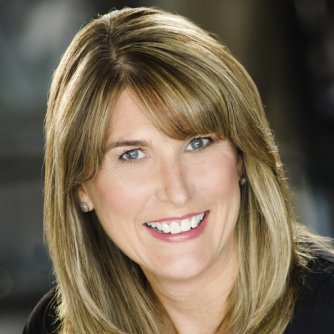Congressman Raúl Grijalva and Secretary of the Interior, Ryan Zinke, recently locked horns in a bitter and very public war of accusations. Grijalva called on Zinke to resign in light of several ethics investigations and Zinke in turn took to Twitter to personally attack the Arizona Congressman. Grijalva is set to take over the chairmanship of the House Committee on Natural Resources, the committee that oversees Zinke’s Department and makes critical decisions about public lands, energy and the environment. And it turns out Raúl Grijalva's plans for the committee are quite different from his Republican predecessor.
For one, Grijalva has been one of Interior Secretary Ryan Zinke’s most vocal critics. Over the past couple of years he has questioned Secretary Zinke on numerous occasions about his spending on office furniture, his approach to shrinking Bears Ears National Monument, and about whether or not he suppressed scientific findings he didn’t agree with.
Secretary Zinke is currently the subject of at least three ethics investigations. As chair of the House Natural Resource Committee, Grijalva now has the power to push for more transparency in those inquiries. Still, Grijalva believes Zinke is just part of the problem.
“I think that if he were to resign or be sent away,” Grijalva said, “the legacy of kind of turning over Interior to the fossil fuel industry and the extraction industry is not going to go away. So there’s still things to look at.”
What he promises to look at are environmental issues.
“What I think you can expect is a return to giving prominence to the conservation side that hasn’t been there in the last two years,” said Grijalva. “And any legislation that continues to rip away at our bedrock environmental laws, we’re not gonna waste time on it.”
Grijalva said he also plans to focus on issues in Indian Country, on protecting wildlife and the Endangered Species Act, preserving public lands, and the elephant in the room—climate change.
“Climate change has been scrubbed from the discussion,” argued Grijalva. “Peer review has been severely handicapped. Panels of scientists have been eliminated and you don’t talk about climate change, you don’t talk about science anymore when you’re making decisions.”
He wants to change that. But Kathleen Sgamma, president of the industry group Western Energy Alliance, is not thrilled about a Democrat, specifically a politically progressive one like Grijalva, taking the helm and, as she sees it, stirring things up.
She called Grijalva “extremely hostile to oil and natural gas development, economic development – ranching, mining, timber-- any kind of development on federal lands.”
She said she’s not worried about losing too much ground, though – mainly because of partisan gridlock in Congress.
“It’s unfortunate that Congress cannot come together and find some compromises on natural resource issues,” she said, “but that’s just the nature of Washington DC.”
Others, though, have more faith in Grijalva’s ability to move things forward. Kieran Suckling, director of the environmental nonprofit Center for Biological Diversity, is one of them.
He argued Grijalva has “been able to broker deals Republicans both in the House and the Senate to protect the environment.”
Suckling is not a fan, however, of the current chair, Republican Rob Bishop from Utah.
“Bishop is really one of the most anti-environmental congressmen in Congress,” Suckling said.
Suckling sees Grijalva as an ally -- for good reason. Grijalva is on the advisory board of the Center for Biological Diversity’s Climate Law Institute and has been vocal about prioritizing the environment.
For his part, former committee chair Rob Bishop issued a written statement in response to the transition. “We look to continue being active next Congress as we move into doubling down on President Trump’s top notch environment and energy policies,” he wrote.
Whether he’ll be able to do that with Grijalva at the helm is an open question, but Grijalva is hopeful there will be bipartisanship on the Committee. Still, regarding common ground with the former chair, Grijalva was modestly optimistic.
“We both like baseball,” he ventured. “I don’t know if we sometimes see the sky the same color, politically speaking, probably rarely. But you know that’s part of what we need in this Congress is a level of civility and respect for one another’s opinions. He’s shown that to me and I hope I’ve shown that to him.”
Grijalva will take over the chairmanship in January 2019.
This story was produced by the Mountain West News Bureau, a collaboration between Wyoming Public Media, Boise State Public Radio in Idaho, Yellowstone Public Radio in Montana, KUER in Salt Lake City and KRCC and KUNC in Colorado.









